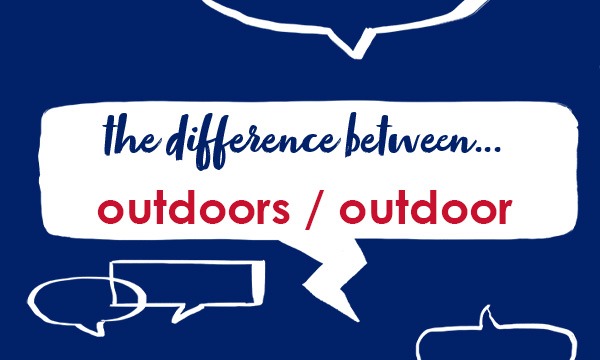This week we are looking at two words which may be confused by learners of English: outdoors and outdoor.
outdoors

Outdoors is an adverb. If something happens outdoors, it does not happen inside a building.
He spent a lot of his time outdoors.
School classes were held outdoors.
When someone goes out of a building, you don’t usually say that they go `outdoors’. You say that they go outside.
outdoor

Outdoor is an adjective used in front of a noun. You use it to describe things or activities that exist or happen in the open air, rather than inside a building.
There is also an outdoor play area.
If you enjoy outdoor activities, this is the trip for you.
Find out more in our English Usage article.
This blogpost is based on Collins COBUILD English Usage, written for learners of English. For more examples of English usage points, please visit: https://grammar.collinsdictionary.com/english-usage.
All opinions expressed on this blog are those of the individual writers, and do not necessarily reflect the opinions or policies of Collins, or its parent company, HarperCollins.



